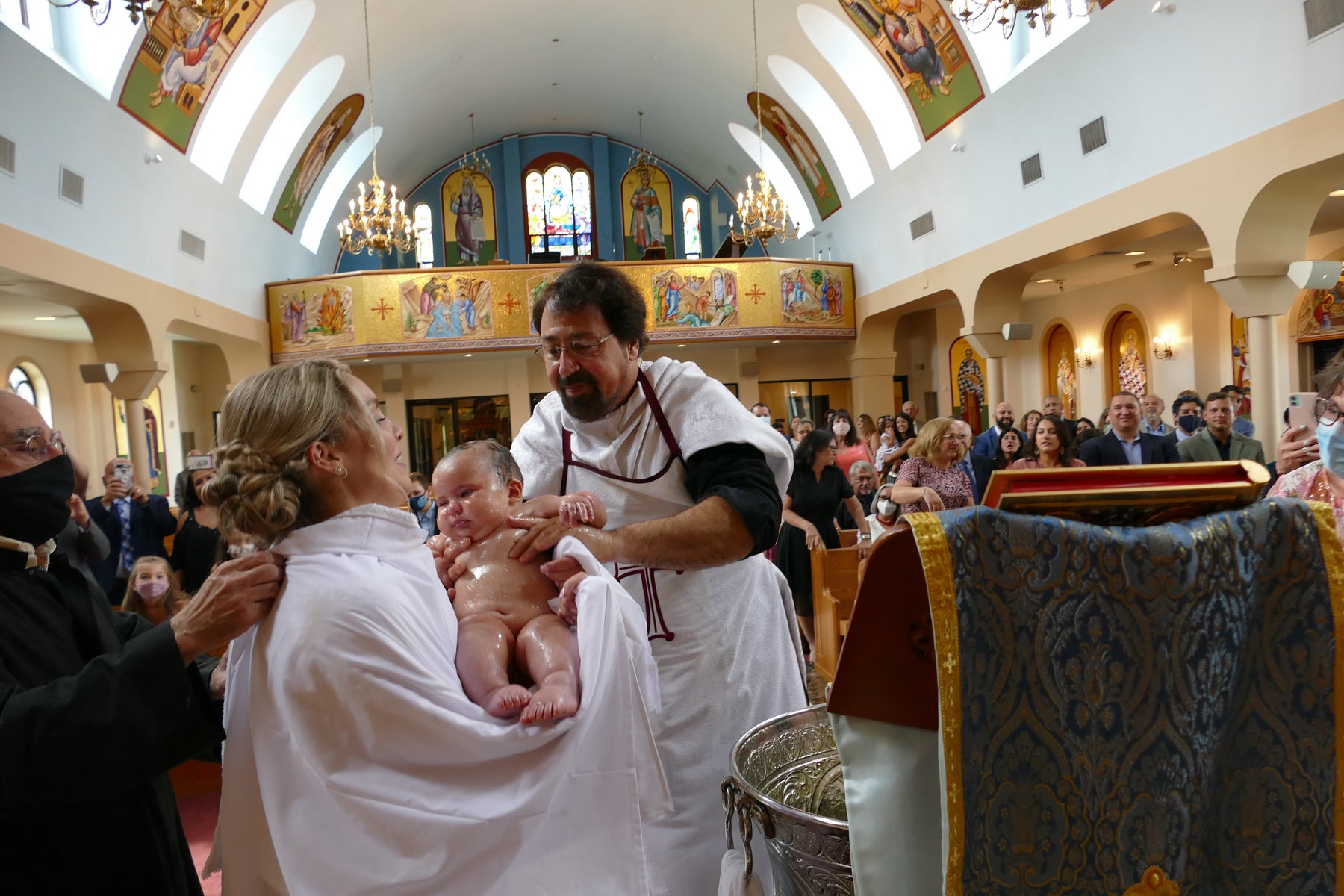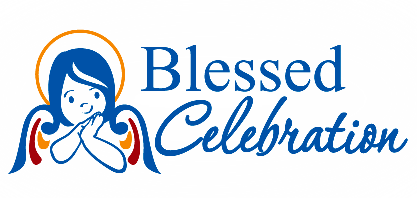
How Covid Impacted the Traditional Timeline of the Sacrament of Holy Baptism in the Orthodox Church
Covid 19 has caused a great shift for Orthodox Christians and the conducting of Orthodox Sacraments. The Sacrament of Holy Baptism has been particularly affected. As we collectively begin to transition out of full-time pandemic life, the impacts, both big and small, become apparent. At the beginning of Covid, life seemed to be put on pause – especially all types of gatherings of groups and celebrations. Also, placed on pause was the Sacrament of Baptism into the Orthodox faith.
In Orthodox tradition, babies are generally baptized between 40 days and 12 months. For Orthodox Greeks, the baptismal day is one of, if not the, most important day in a young child’s (or adult’s) life. Holy Baptism is the first of the seven Sacraments in the Orthodox Christian Church. It is the day that an individual becomes an Orthodox Christian and welcomed into God’s family. During the baptism, the individual is submerged or covered three times in water that has been blessed by a priest. These three submersions represent the three days that Jesus spent in the tomb. Family and friends usually are invited to bear witness to the special milestone.
The virus forced churches to shut their doors and limit the number of Sacraments performed - especially baptisms. The first few months of the pandemic, February - May 2020, saw nearly no baptisms in effect. An Orthodox Church conducts, on average, about 2-4 baptisms a week - smaller churches may do fewer, larger churches may do more. With 2,121 listed Orthodox Churches in the United States -that’s about 5K baptisms that have been affected over the past year.
It is certainly not ideal to delay the Sacrament of Baptism. A limited number of baptisms were conducted during the height of Covid - so the doors to introduction into the Orthodox Church were not completely closed. But the vast majority of planned baptisms were delayed. Many of these baptisms that were able to take place during the first half of 2020 were last minute affairs: the priest alerted the family there was a date available and the baptism was quickly pulled together. Generally, those baptisms were conducted with just a few members present - the immediate family of the baptized and the Godparents.
Many Orthodox Christians elected to postpone the baptism of their child until safer times or until they could celebrate with friends and family. Many churches are now reporting a backlog for requested Sacraments (Baptisms, Chrismation, Marriage, Confessions, etc). As the world has opened back up, so have baptisms. The result is a surge in baptisms – and those getting baptized are now older on average than they ever have been. There is a surge of baptisms of children over the age of 12 months. It is not uncommon to now find children 2 or 3 years old being baptized. Having an “older” child be baptized means larger oil sheet size, a larger baptismal outfit, and, of course, fewer baptisms conducted where the child is dunked into the baptismal font. Generally, after the age of 18 months, a baby is no longer dunked – but rather the oil is poured over the child’s head as he/she stands over or is lifted over the baptismal font (as they are too big/heavy for the dunking.)
The impact of Covid 19 for religious events extends well beyond just the Orthodox church. A similar impact can be seen in the practices of other religions, such as confirmations for the Catholics and bar/bat mitzvahs for Jews. For Roman Catholics, the age of confirmation was extended and the Bishop allowed pastors to confirm teens through the end of the liturgical year (11/27/2020). Unlike the Greek Orthodox Sacraments, Catholics were able to conduct their sacrament of confirmation outdoors. For Jews, many Hebrew students were able to extend their bar/bat mitzvah date a few months after the initially assigned date. However, unlike the Orthodox Faith, the service was able to be done via zoom. For Greek Orthodoxy – the sacrament of baptism had to be done indoors in the Church and could not be modified to be done over Zoom. Thus, it could be said, that Christian Orthodox have had an especially challenging time with accommodating the request for the Sacrament of Baptisms.
As we begin to transition into a post pandemic world, we will start to see more Baptisms as churches are open and group gatherings are less regulated – and there will be a return to the typical chronological Baptismal timeline. More than ever, we can appreciate the ability to come together as a community and celebrate our faith. If you are planning a baptism any time soon, these following products may be helpful for your baptism:
-
Witness Pins: Witness Pins, also known as martyrika, are pinned on guests that attend a ceremony, signifying they witnessed the sacrament or special celebration. Godparents pin the martyrika onto guests at the end of service. Blessed Celebration carries a huge selection of witness pins to best match your style. All our pins come with the hat pins that can be used to pin to guest's apparel.
-
Jordan Almond Favors: Jordan Almond Favors, also called bomboniera – or bonboniere - are given out in celebration at weddings, baptisms, engagements, and other celebratory events. The jordan almonds have a hard coating of sugar representing the sweetness of life. The sugar coating represents the hope that life will be blessed with more sweetness than bitterness (the almond). The traditional 5 almonds represent health, happiness, fertility, wealth and a long life. There is always an odd number of almonds in the favor – symbolizing the indivisible bond with Christ. We can customize your favors to any design or option.
-
Baptism Candles: Baptism Candles, also known as Greek Lambades, are held by the parents or godparents and they go home as a memento for the baptized person. We offer both thick stemmed and tapered candles, which are a mix of stearine and paraffin. They burn slowly, evenly and are nearly dripless and odorless.
-
Lathopana: Lathopana are gift sets that include many of the items needed for the baptism. The lathopana may include towels, an oil sheet to wrap the baby in, an oil bottle to hold the holy myrrh or soap to help wash the baby after the ceremony. Our collection consists of both boy lathopana and girl lathopana.
-
Outfits: The baptismal attire consists of the outfit, the shoes and the socks. Traditionally undergarments are also used (a onesie or specialty cloth undershirt and bloomers) that can absorb the Holy oil on the baby and provide a protective layering between the (oily) skin of the baby and the baptismal outfit. Whether or not the outfit comes with a bonnet or hat, many also choose to buy an oil liner cap for the baby’s head to absorb the holy oil and protect the clothing of anyone holding the baby. All clothing should be white.

Leave a comment